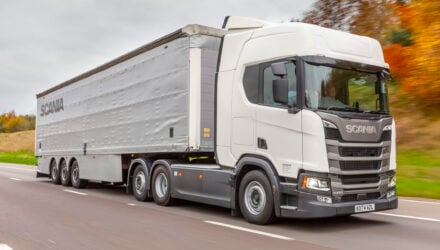The true, long-term impact of the COVID-19 pandemic on many industries is still uncertain; however, within the fleet and fuel payments ecosystem space, the pandemic has acted as an accelerant for the implementation of strategic digital initiatives and innovation.
While many fleet and fuel card service providers intended to focus on digitalisation in the long term, the events of last year caused many fleet and fuel card service providers to accelerate those digitalization strategies.
Investment into new technologies
The rise of Electric Vehicles (EV) has not only impacted the consumer market, but the commercial fleet sector has started to take notice. As Governments worldwide pledge to reduce their carbon footprint in the UN Climate Change Conference (COP26), many oil companies have begun to ramp up their efforts to develop the EV infrastructure to meet the upcoming demand.
The dilemma is how can an electric heavy goods vehicle (HGV) charge up quickly and run effectively compared to their gas-guzzling counterpart? The battery-electric technology cannot offer the power and energy to deliver heavily-weighted goods for long distances. The limited charging infrastructure would be more of a challenge, and the cost of maintaining these vehicles could lead to astronomical prices.
The alternative could see hydrogen fuel cells become the medium and long-term solution for powering HGVs. DAF Trucks have already begun extensive trials with the likes of Toyota and Shell to test out the concept of hydrogen-powered trucks. There is no silver bullet that hydrogen would be a suitable alternative to EV – with many questions being asked about the cost-effectiveness and reliance on fossil fuels to power up the cell.
Fuel card fraud is on the rise, and with a large proportion of fleet card service providers still using magnetic striped cards, as either their primary or fallback security method, the challenge is to find the balance of meeting the ever-changing fraud landscape and remaining competitive.
The increasing pressure to migrate to EMV Chip card technology and safer payments, in conjunction with the advancement in mobile phone technology, has meant that companies are demanding solutions that provide them with more security, control, and convenience.
One solution being trialled in the UK is the introduction of digital in-truck fuel payment systems, which allow HGVs to log fuel transactions directly, without the need for the driver to leave the vehicle. The rationale behind this technology is to remove the complication of managing multiple fuel cards, which helps to reduce fraud.
Although the idea of a single payment platform in a vehicle has its benefits, we need to consider the driver being the conductor of payments for vehicle-related purchases and non-traditional purchases, such as accommodation and food. This should help companies manage their costs more effectively and reduce operational overload regarding payments.
Collaboration is key
Fleet and fuel card service providers need to consider change and be open to collaborating and innovating with other parties to develop out-of-the-box digitalisation solutions. This will reduce their dependency on legacy platforms and alleviate some of the investment and risks relating to the reconstruction of platforms. Integrations to accommodate new generation technology will be core to their survival.
COVID-19 has accelerated the need for all businesses to step up investment in their digital infrastructure. The digitalisation journey in the fleet and fuel sector has been long overdue. By embracing new technology and collaborating, the fleet and fuel card ecosystem will continue to thrive in these uncertain times.
Author: Leon Du Plessis, Key Account Manager for MEA at The ai Corporation (ai)





















